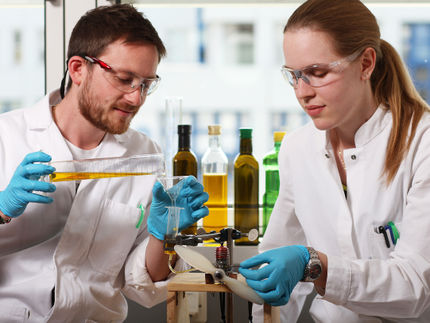CAPHENIA and Emerging Fuels Technology cooperate for more sustainable aviation
Companies announce MOU to optimize scalable Sustainable Aviation Fuel production
To capitalize on the fast growing demand for SAF (Sustainable Aviation Fuel), CAPHENIA GmbH, a pioneer in the development of sustainable synthesis gas technologies, and US based Emerging fuels Technology, Inc. (EFT), a leader in Fischer-Tropsch Synthesis, are pleased to announce they have signed a memorandum of understanding to integrate their technologies for the production of SAF and renewable diesel. This cooperation will optimize CAPHENIA’s leading Plasma Boudouard Reactor (PBR) technology with EFT’s Fischer Tropsch and upgrading “Technology Platform” to significantly improve the efficiency and scalability of SAF production. The MOU also provides for CAPHENIA to acquire license rights to combine its sygas technology with EFT’s Technology Platform for multiple projects.
Innovative technology for the conversion of (bio)methane (CH4) and CO₂
CAPHENIA, based in Bernau am Chiemsee, specializes in the conversion of (bio)methane (CH4) and CO₂ into high-quality synthesis gas, which serves as the basis for the production of hydrogen and renewable liquid fuels, especially SAF. Its PBR technology enables the efficient transformation of methane and CO₂ into syngas, which is then converted into liquid fuels using EFT’s advanced Fischer-Tropsch and upgrading technology.
EFT’s expertise in Fischer-Tropsch synthesis and upgrading technology
US based EFT, with decades of experience, is a leader in the development of synthetic and renewable fuels. EFT’s Technology Platform ideally complements CAPHENIA’s strategic direction and enables efficient production of SAF and renewable diesel on a very large scale.
Common goals and technology integration
“This agreement marks a significant step in our mission to make aviation more sustainable,” said Dr. Mark Misselhorn, CEO of CAPHENIA. “The integration of EFT’s highly regarded catalyst and reactor technologies will accelerate market entry for SAF and renewable diesel, providing a rapidly scalable alternative to established SAF technologies.”
Kenneth L. Agee, president of EFT, emphasized the strategic importance of this agreement: “Our Memorandum of Understanding reflects our shared commitment to developing efficient, globally scalable sustainable fuel solutions that will significantly contribute to supplying the global demand for SAF for airlines worldwide.”
Revolutionary technology and sustainable mobility
CAPHENIA has developed the Power-and-Biogas-to-Liquid (PBtL) reactor, which requires significantly less electricity than conventional processes and enables a CO₂ reduction of up to 92 percent.
The selectively controllable CAPHENIA 3-in-1 zone reactor and the unique plasma process break down bio-methane into its components carbon and hydrogen. By adding carbon dioxide and water this highly efficient technology produces a synthesis gas that can be processed into renewable fuels and other chemical products without any by-products and minimal energy loss. The reactors are designed for scalability and make it possible to produce large quantities quickly. This technology offers a competitive and sustainable alternative for reducing greenhouse gas emissions in the transportation sector.
Most read news
Topics
Organizations
Other news from the department business & finance

Get the chemical industry in your inbox
By submitting this form you agree that LUMITOS AG will send you the newsletter(s) selected above by email. Your data will not be passed on to third parties. Your data will be stored and processed in accordance with our data protection regulations. LUMITOS may contact you by email for the purpose of advertising or market and opinion surveys. You can revoke your consent at any time without giving reasons to LUMITOS AG, Ernst-Augustin-Str. 2, 12489 Berlin, Germany or by e-mail at revoke@lumitos.com with effect for the future. In addition, each email contains a link to unsubscribe from the corresponding newsletter.
Most read news
More news from our other portals
Something is happening in the chemical industry ...
This is what true pioneering spirit looks like: Plenty of innovative start-ups are bringing fresh ideas, lifeblood and entrepreneurial spirit to change tomorrow's world for the better. Immerse yourself in the world of these young companies and take the opportunity to get in touch with the founders.





























































